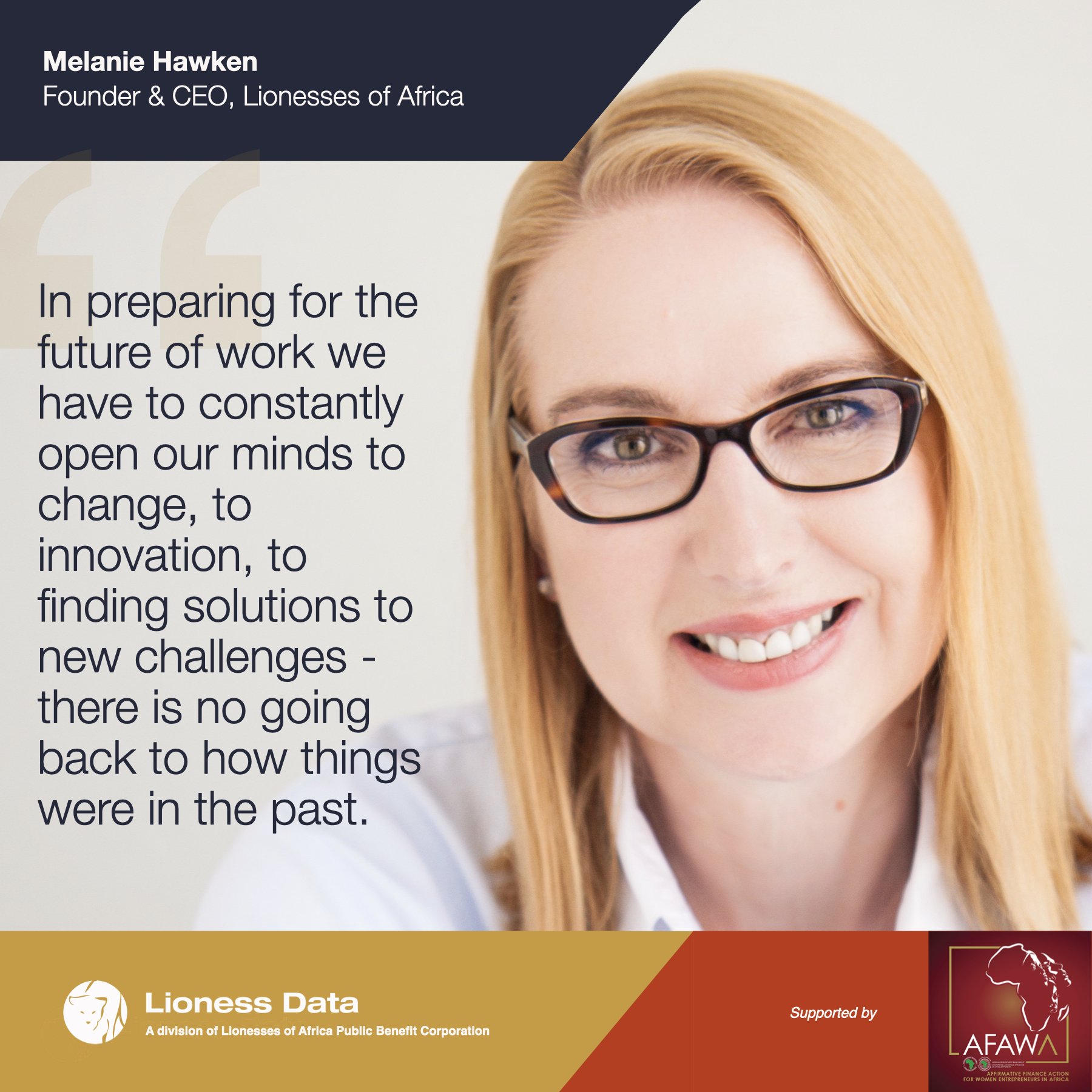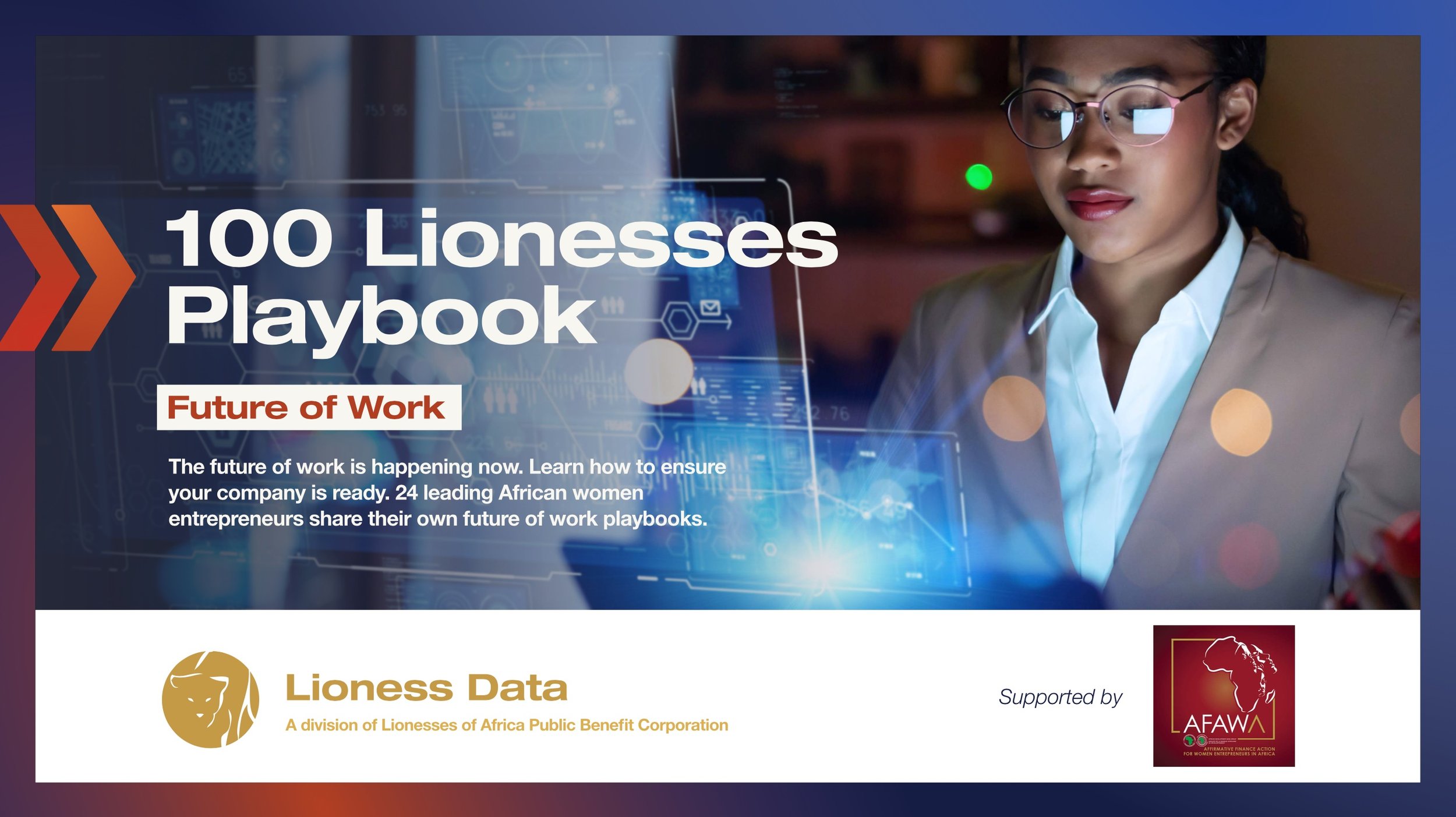Press Release
Report financed by African Development Bank’s Affirmative Finance Action for Women in Africa (AFAWA) initiative
The Covid-19 pandemic has forced Africa’s women entrepreneurs to smartly rethink the way they run their businesses, organize their workspaces, and manage their employees. They have had to think out-of-the-box, innovate, and pivot their existing business models to adapt to new, often restricted and challenging market realities. The future of work now includes remote working, increased digital business and e-commerce, and the introduction of a whole raft of new technology, tools and platforms to connect effectively with customers and employees. For many women entrepreneurs, preparing their businesses for the future of work can be a daunting prospect. As a practical response, the 100 Lionesses Future of Work Playbook has been launched, the second in a series of practical digital tools for Africa’s women entrepreneurs produced by Lionesses of Africa, with the support of The African Development Bank through its Affirmative Finance Action for Women in Africa (AFAWA).
The 100 Lionesses Future of Work Playbook provides fascinating personal hacks and peer-to-peer insights to help women enterprises to kickstart their own future of work transformation journeys. It features 24 leading African women entrepreneurs who share their personal playbooks, hacks and experiences in preparing their businesses for the future of work in five key dimensions: Strategy; Leadership and Vision; Technology and Systems; People and Teams; and New Ways of Working. Importantly, it also provides a practical roadmap for Africa’s women entrepreneurs to follow, concluding with 9 key learnings to help businesses get future of work ready.
Speaking about the importance of business planning for The Future of Work for women entrepreneurs in Africa, Esther Marieme Dassanou, Manager, Affirmative Finance Action for Women in Africa (AFAWA), African Development Bank Group, says:
“Gone are the days of full brick and mortar businesses, or only face-to-face interaction with customers. Moving forward the businesses getting ahead are the ones with a strong digital presence, involved in e-commerce, and having redesigned their systems to accommodate remote work. Looking at the glass half-full, this new work model provides great opportunities for women entrepreneurs as it allows them access to a much wider market, as well as increased productivity in some instances.”
Esther adds, “As women entrepreneurs pivot and adapt to the new ways of doing business, it will be important to carry along financial institutions who are also having to change the way they carry out their business. The inputs for better financial support and financial service customization can only come from open and more frequent dialogue between women entrepreneurs and financial Institutions. The African Development Bank through its Affirmative Finance Action for Women in Africa (AFAWA) Initiative is dedicated to closing the $42 billion financing gap for women SMEs on the continent. For this it works closely with commercial banks, meso and microfinance institutions, equity funds and guarantee providers to develop holistic programs which include financial and non-financial services for women entrepreneurs to grow their businesses. It is time to make our financial institutions part of our growth and pivoting process.”
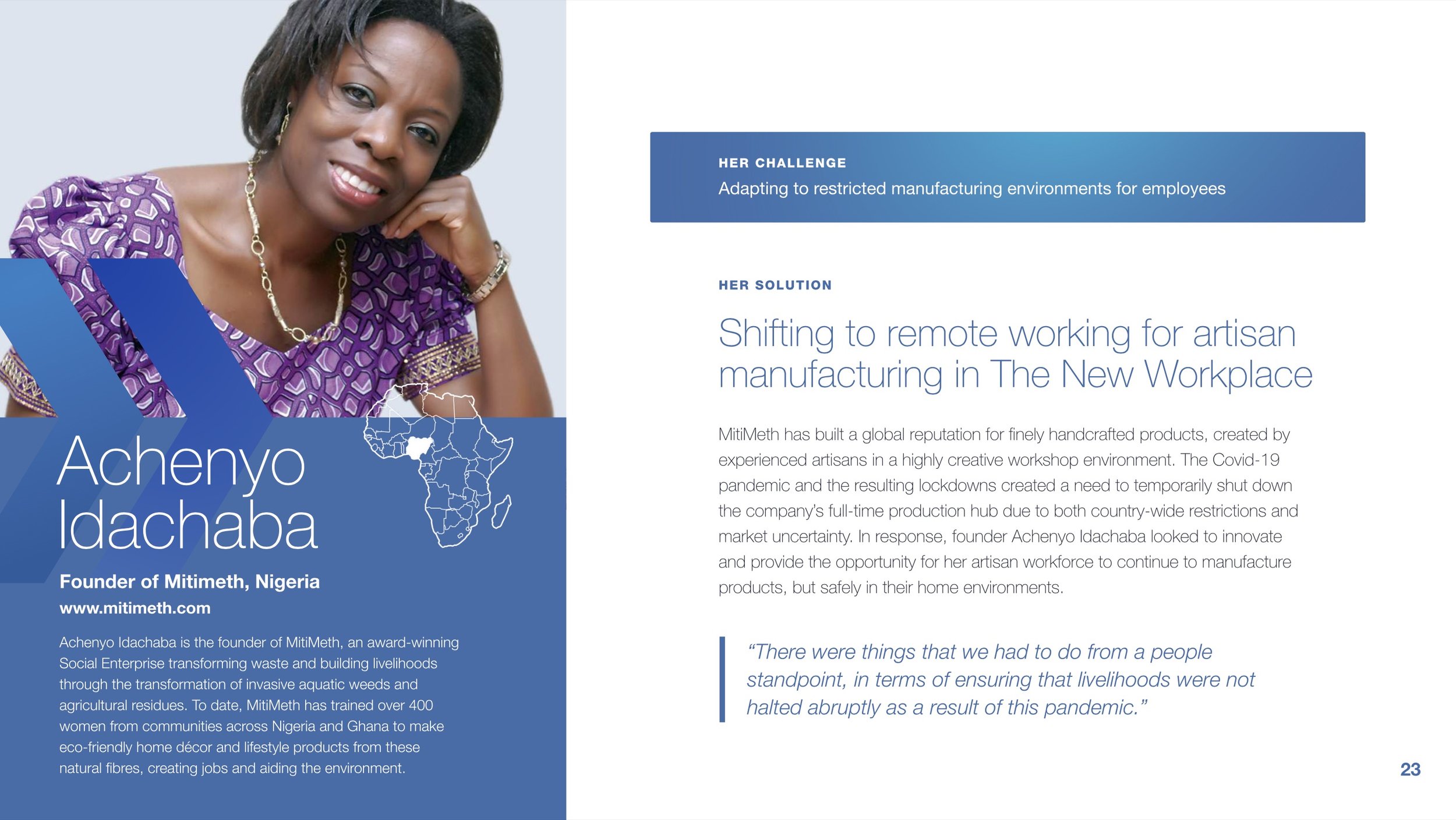
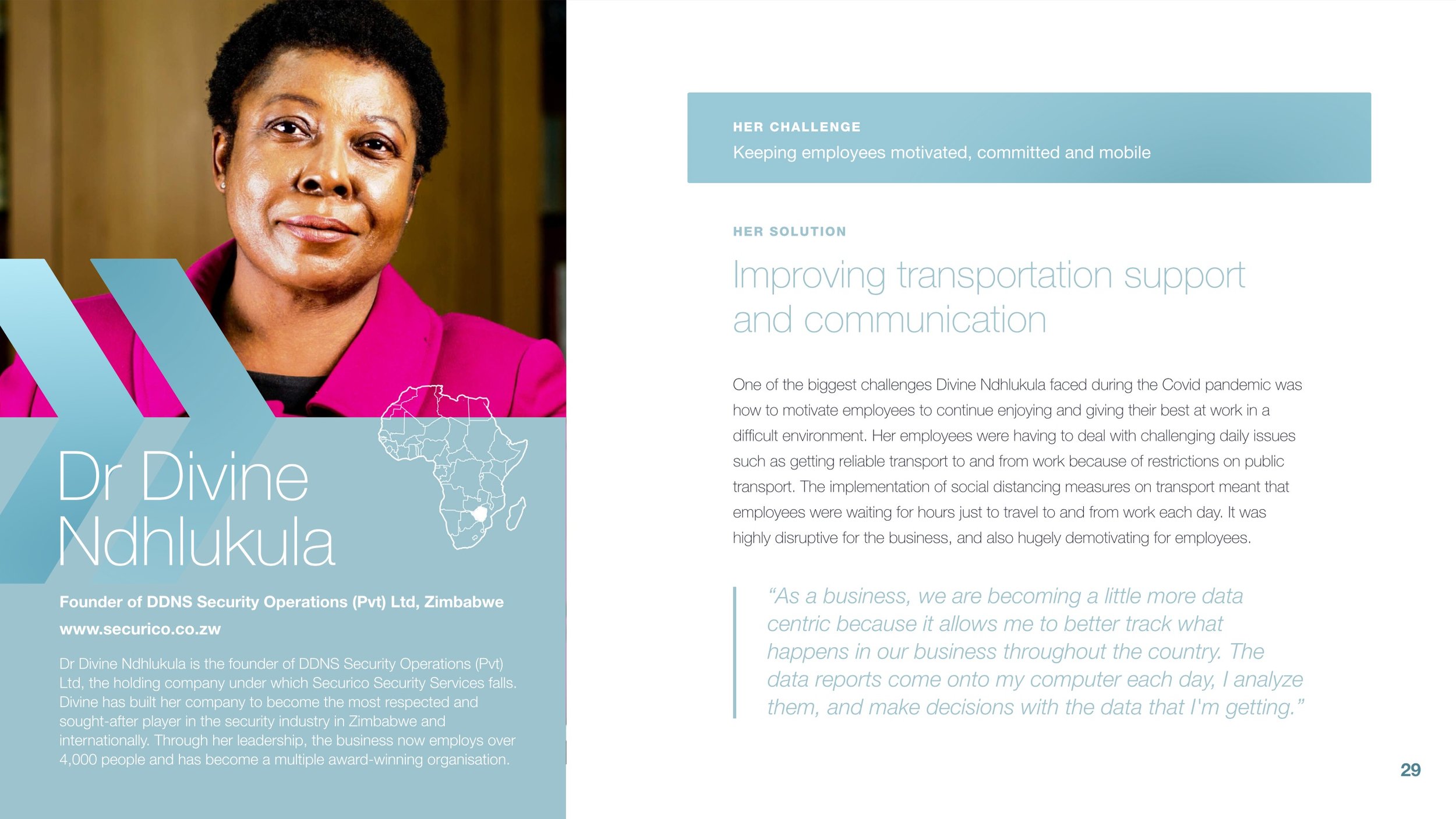
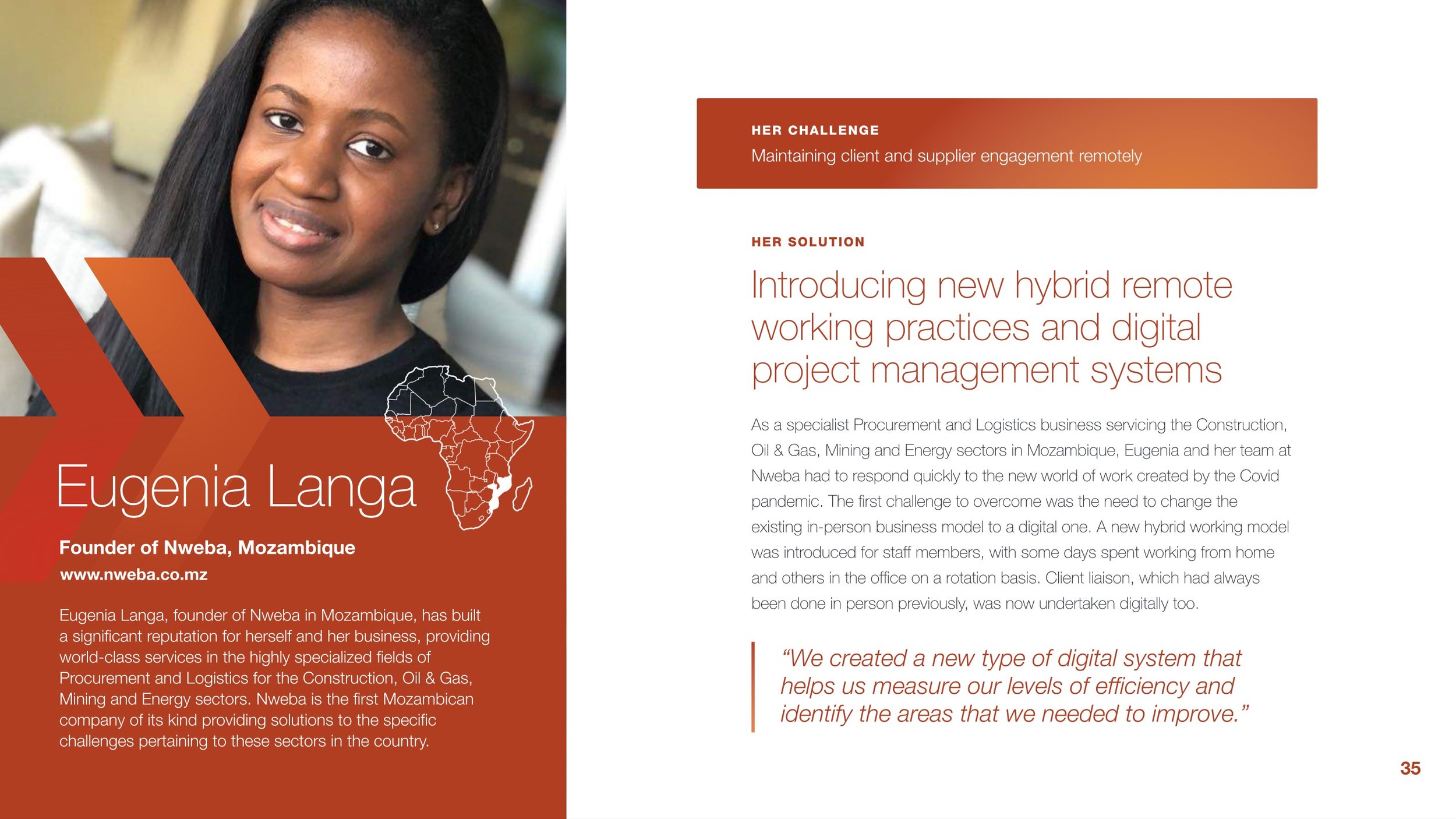
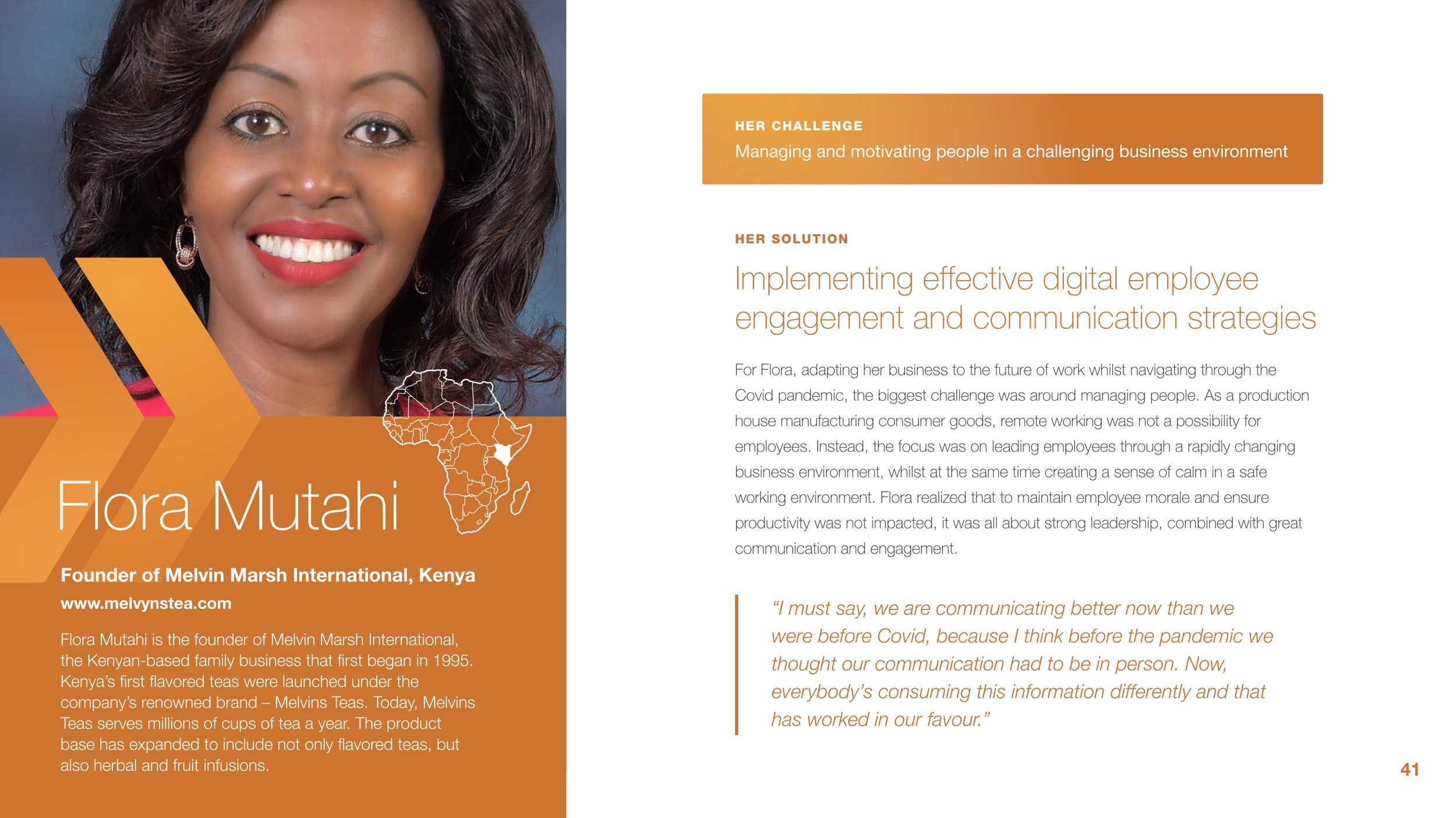
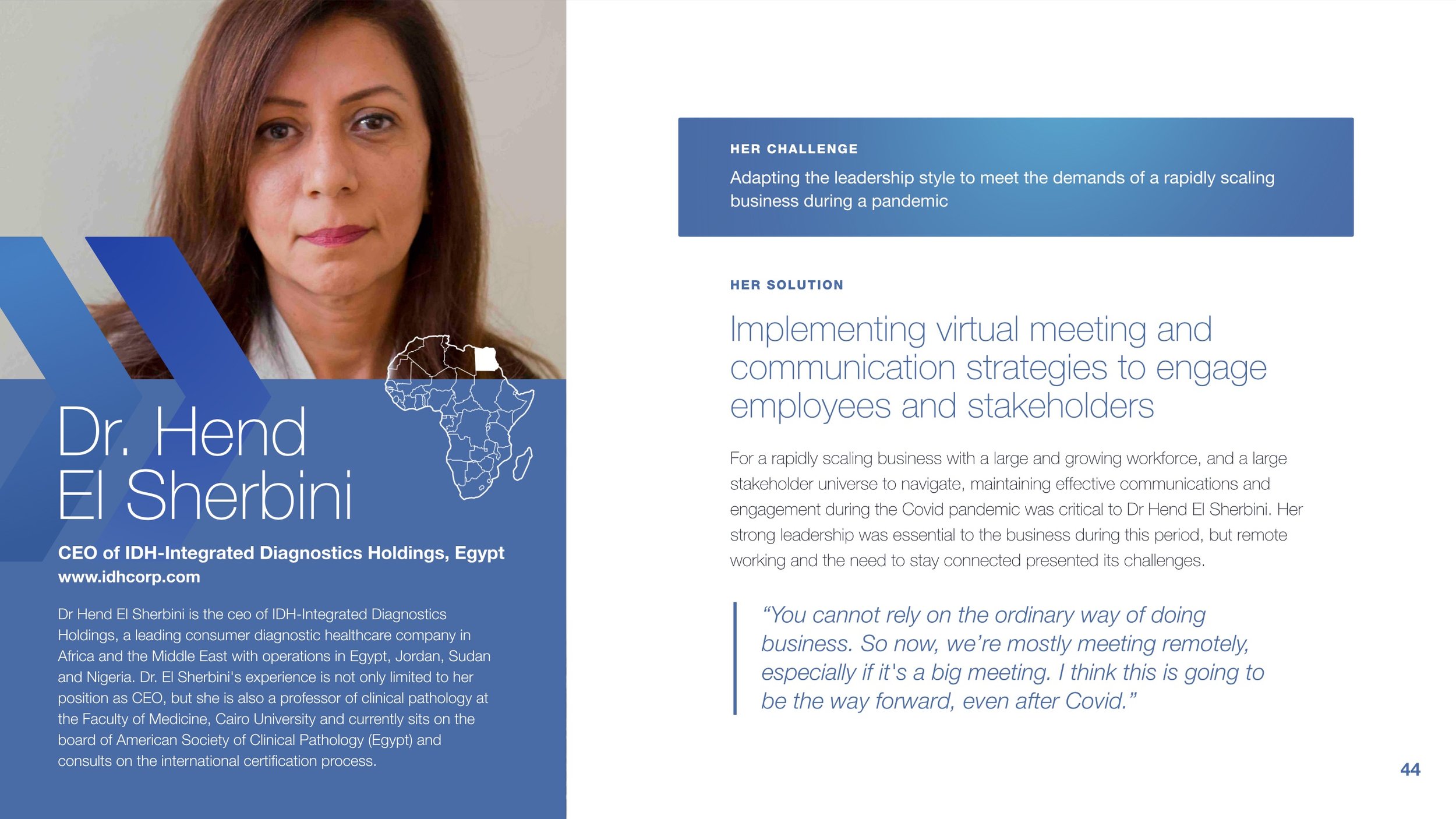
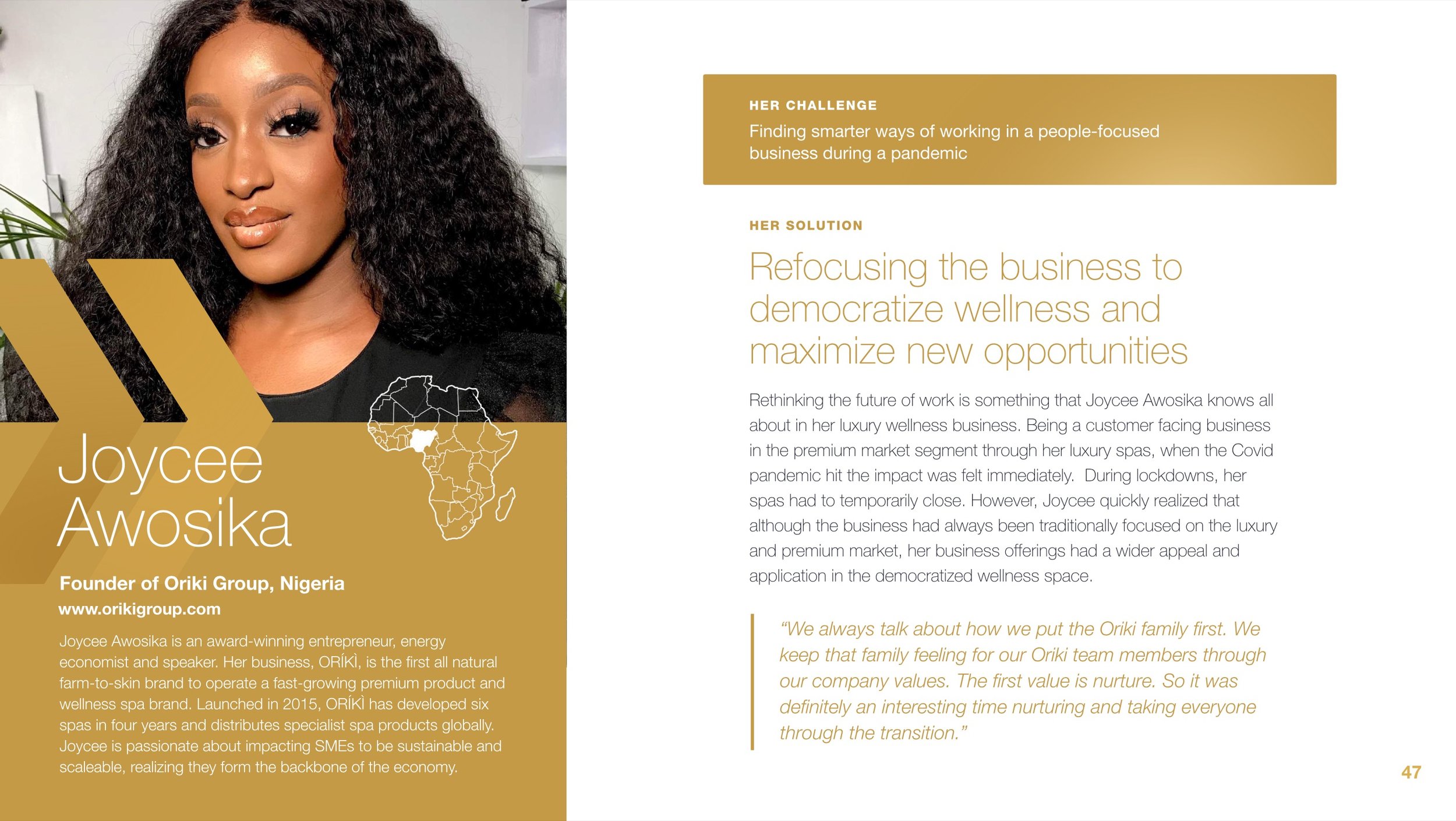
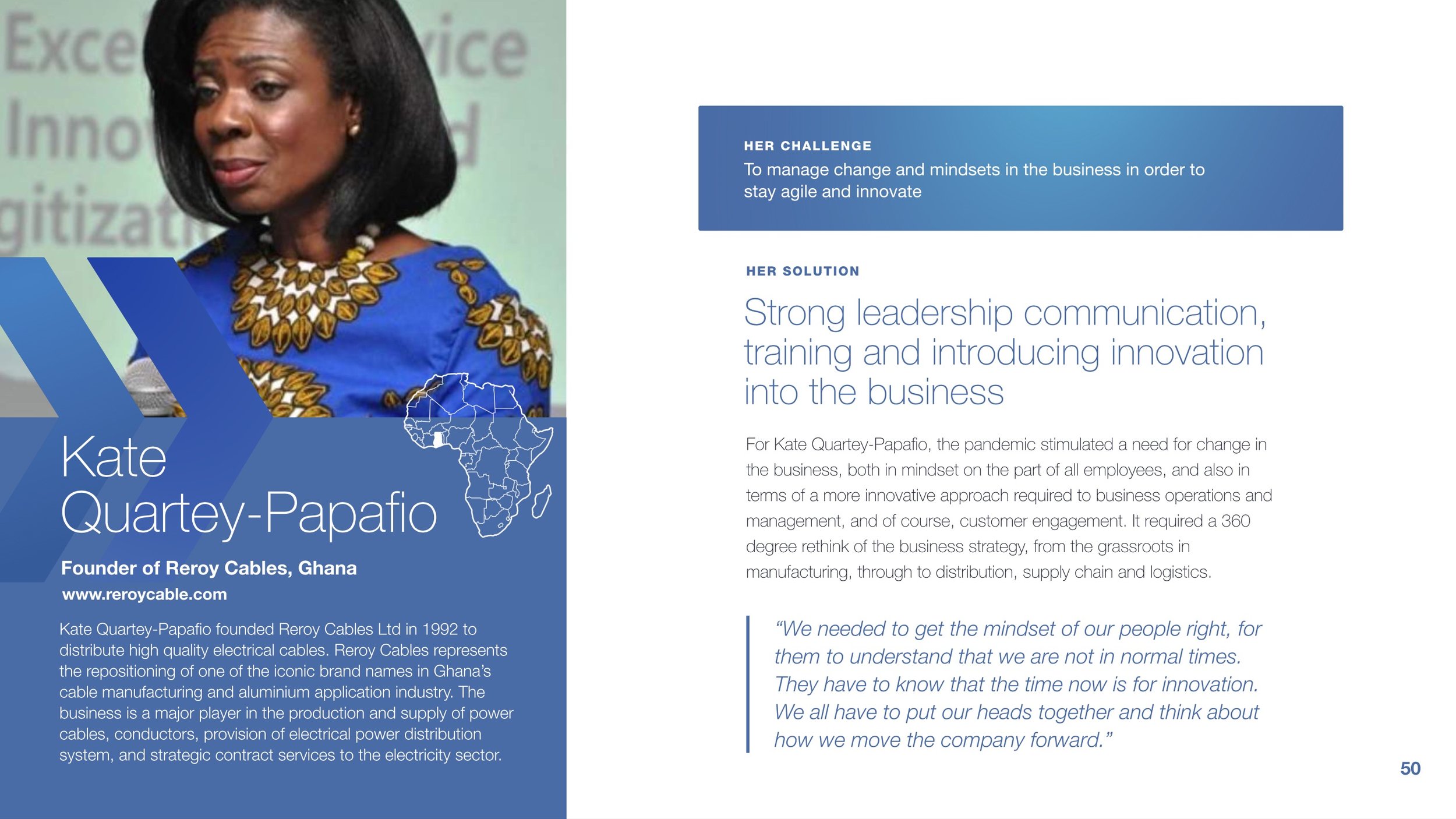
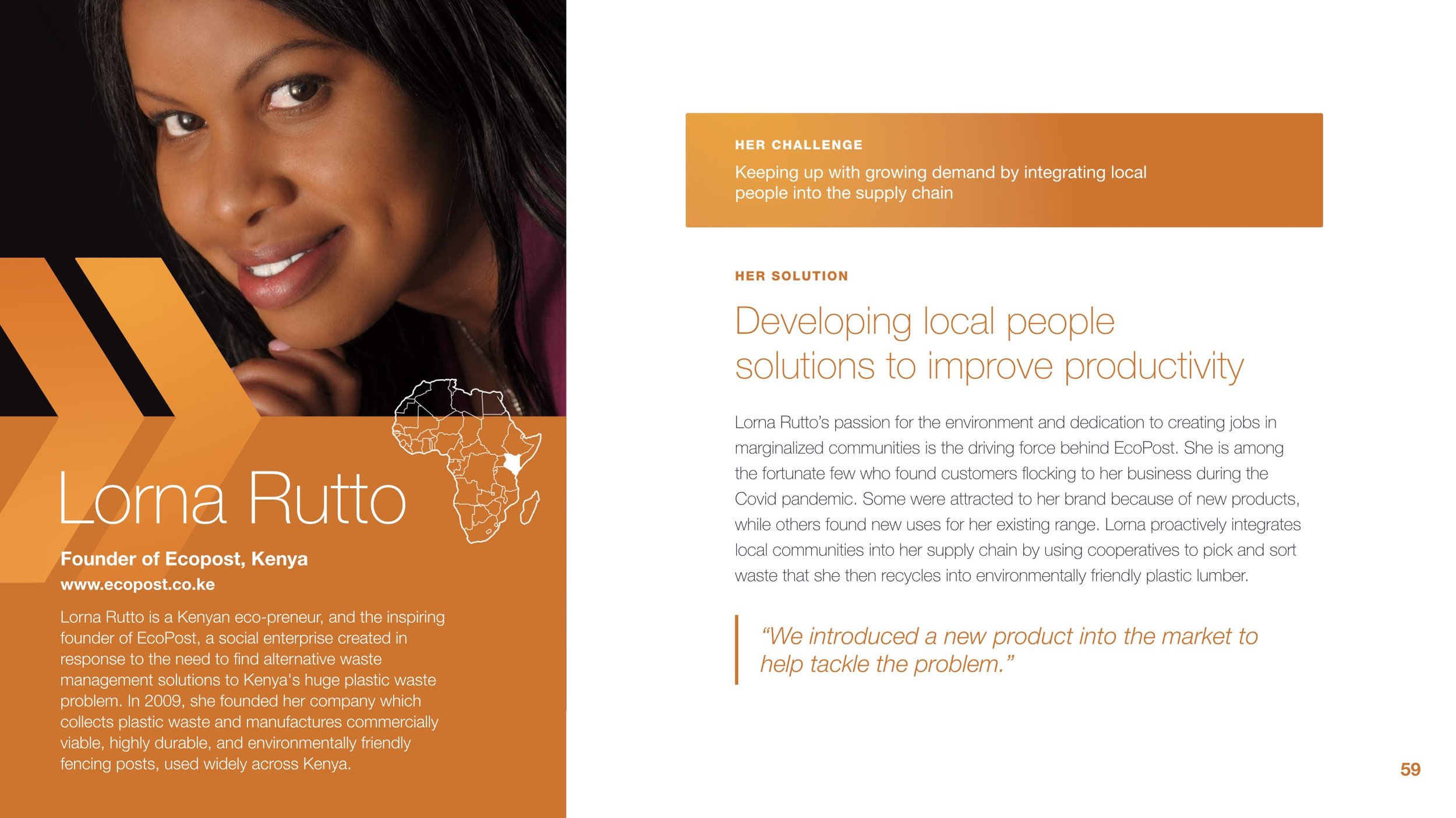
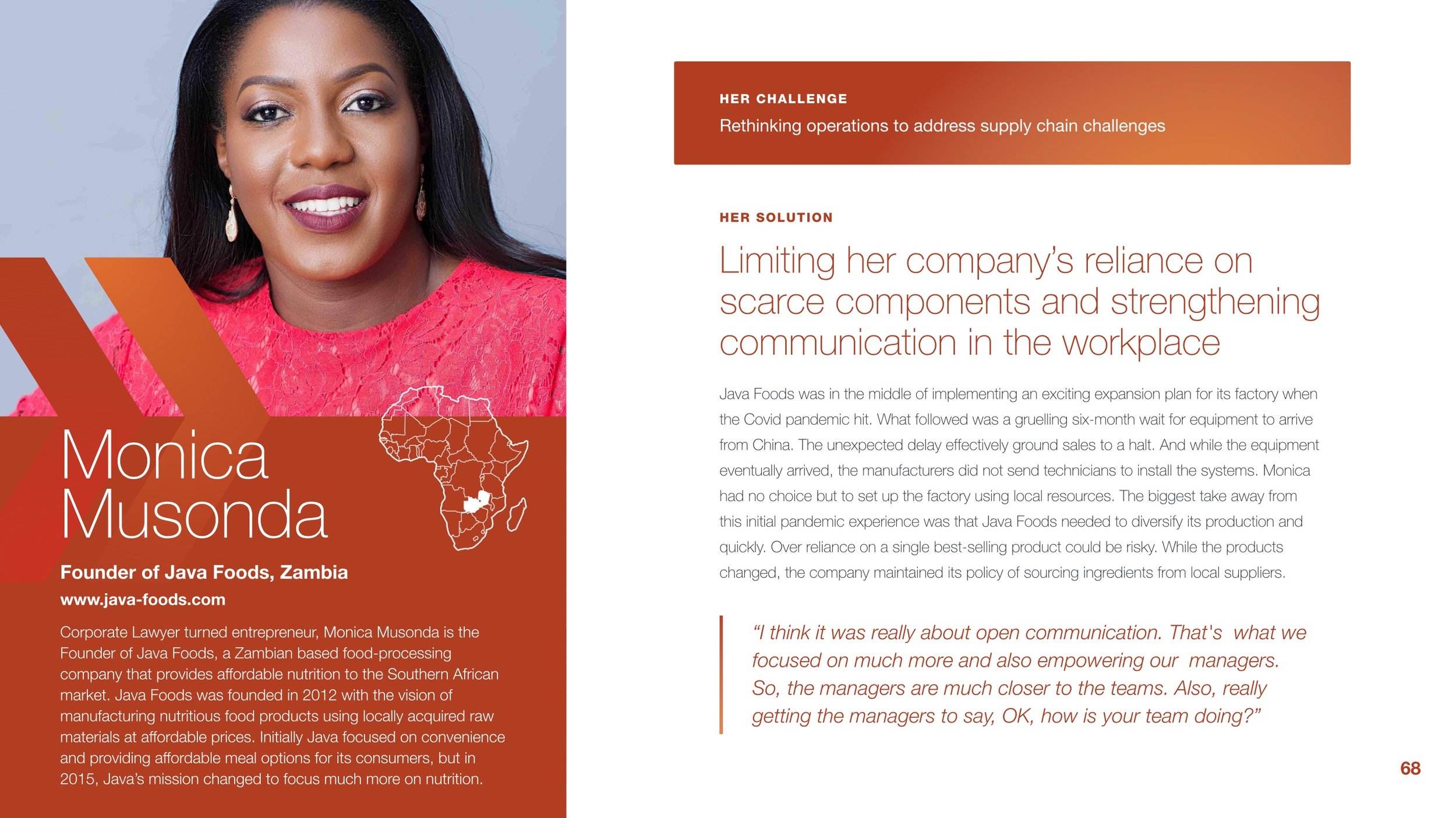
Speaking about the launch of the 100 Lionesses ‘The Future of Work’ Playbook, Lionesses of Africa founder & ceo, Melanie Hawken, said:
“I am a big believer in the power of learning from the experiences of other women entrepreneurs if we want to grow and thrive in our own businesses. There is nothing quite like seeing how others have navigated their way successfully through challenging times. This is especially true in the wake of COVID-19 and its continuing impact in our business lives. Our working practices, the structure of our businesses, the reorganization of our workplaces, and the practical way we communicate with and engage our employees, has changed out of all recognition, and continues to evolve at a faster pace than ever. Just a few years ago, who would have thought that remote working for our employees would become the norm, not just a concept. In fact, it is predicted that almost half of employees may continue to work remotely or in a hybrid working model for the foreseeable future. All of this is transforming the future of work, and there is no going back to how things were. As a result, we have to constantly open our minds to change, to innovation, to finding solutions to new challenges - and importantly, to learning from other women entrepreneurs. The future of work is already here, the question we have to ask ourselves is, are we ready?”
The 100 Lionesses ‘The Future of Work’ Playbook for Africa’s Women Entrepreneurs can be downloaded via the button below.



